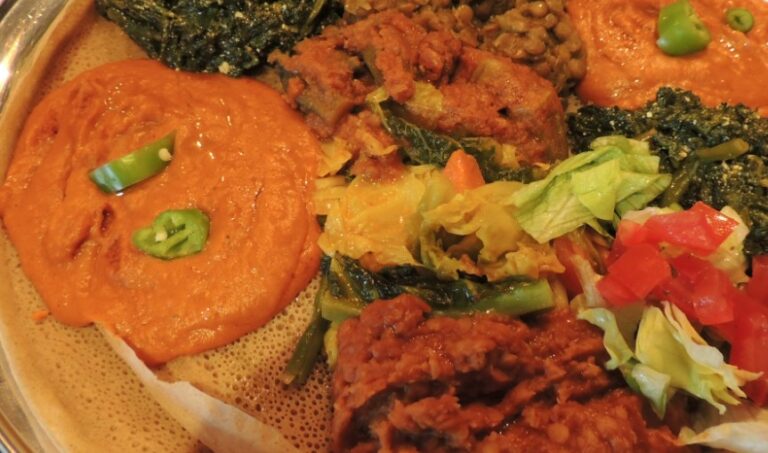Introduction: The Culture of Food in Eritrea
Eritrean cuisine is a blend of African, Middle Eastern, and Mediterranean flavors and is influenced by the country’s history, geography, and cultural diversity. Food plays an essential role in Eritrean culture, and it is customary to share meals with family and friends. Eritrean dishes are known for their unique flavors and the use of spices and herbs. The country’s cuisine consists of vegetarian and non-vegetarian dishes made with grains, lentils, vegetables, and meat.
Street Food: A Global Trend
Street food has been a popular food culture in many countries worldwide. This trend has spread to different parts of the world, including Africa. Street foods are popular because they are affordable, quick, and offer a wide variety of options. Street food vendors are found in markets, sidewalks, and other public spaces. Street food has become an integral part of urban culture, and people enjoy their favorite food on the go.
Traditional Eritrean Dishes
Eritrean cuisine is known for its flavorful dishes, and some of the traditional dishes include injera, a sourdough flatbread made from teff flour, shiro, a chickpea stew, and tsebhi, a slow-cooked meat stew. The dishes are often served family-style and accompanied by vegetables, salads, and other sides. Eritrean cuisine is also known for its coffee, which is traditionally brewed and served during social gatherings.
Street Food in Eritrean Cities
Street food is a common sight in Eritrean cities and towns. In Asmara, the capital city, street food vendors can be found in markets and busy streets. The street food scene in Eritrea is vibrant, and people can find a variety of dishes from different regions of the country. Some of the popular street foods in Eritrea include grilled meat skewers, spicy lentil soup, and fried doughnuts known as zlebia.
Popular Street Food in Eritrea
In Eritrea, street food vendors sell a variety of dishes influenced by the country’s diverse cuisine. Some of the popular street foods include samosas, a savory pastry filled with meat or vegetables, and ful, a dish made of fava beans, vegetables, and spices. Other popular street foods include boiled eggs, roasted corn, and fresh juices.
Street Food Safety and Hygiene
Street food safety and hygiene are essential for the health and well-being of consumers. In Eritrea, street food vendors are required to follow food safety regulations to ensure that the food they sell is safe for consumption. The government conducts inspections to ensure that vendors comply with food safety regulations. Consumers are advised to buy food from vendors who follow food safety guidelines and are licensed to sell food.
Street Food Vendors in Eritrea
Street food vendors in Eritrea often operate as small businesses and play a vital role in the country’s informal economy. Some street food vendors sell food from small carts or kiosks, while others operate from stalls in markets or busy streets. The street food business provides employment opportunities for many people in Eritrea, especially women.
Conclusion: The Future of Street Food in Eritrea
Street food is an essential part of Eritrean food culture, and it provides affordable and convenient food options for many people. Eritrean street food vendors play a vital role in the country’s economy, and the government should support them by providing training and resources to ensure food safety and hygiene. The future of street food in Eritrea looks promising, and it is likely to continue to be a popular food culture in the country.

